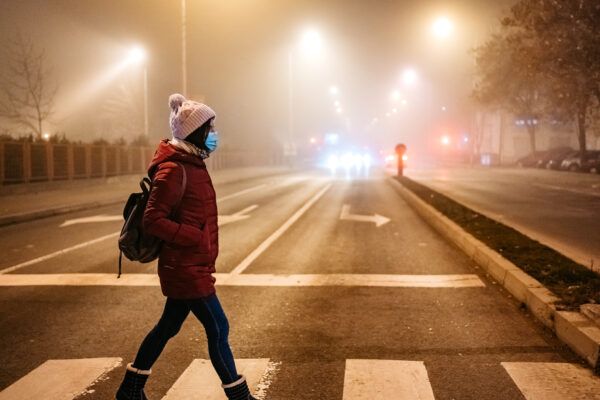Dear President-Designate Dr. Al Jaber,
With 100 days left until COP28 commences in the UAE, we write to you with a deep sense of urgency. We applaud your Presidency for spotlighting climate change’s health impacts by announcing the first-ever Health Day and health inter-ministerial meeting. However, this risks being an empty promise if the conference does not deliver substantive progress in tackling air pollution as the most tangible issue at the nexus of climate and health.
We already know the first Global Stocktake will be a devastating reality check, showing that countries are massively off track from their commitments to the Paris Agreement. For too long, COP and other international gatherings have failed to connect human and planetary health and to act on air pollution and its drivers. This inaction contributes to millions of premature deaths yearly, long and short-term health impacts and soaring economic costs.
We call on your Presidency to put air pollution firmly on the agenda and to catalyse national commitments and international funding to improve air quality.
Air pollution is a pervasive public health crisis and an accelerator of climate change. 99% of the world’s population breathes air that fails to meet WHO guidelines. The main drivers of air pollution are also sources of greenhouse gases, the largest culprit being the combustion of fossil fuels. This interconnectedness means that a full stop to burning fossil fuels is essential to unlock the enormous co-benefits of clean air. We emphasise that clean air cannot be solely achieved by carbon capture technologies, which do not address all toxic pollutants and particulates, such as black carbon which also accelerates warming. Only measures which result in better air quality will deliver the public health co-benefits of climate action.
The IPCC AR6 report highlights that clean air action will improve global public health to such a degree that it will pay for itself or even be cost-negative. It can save lives and reduce the burden of diseases on communities improving health and securing food systems. It will also improve population resilience to respiratory infections, which remain a major killer of young children.
To ensure a transformational COP that ‘supercharges solutions’ as you have pledged, it must deliver specific steps to reduce air pollution, as a way of tackling the climate emergency while delivering rapid win-wins for public health and economies. The Global Alliance on Health and Pollution identified the most effective interventions that improve both health, by reducing fine particulate matter (PM2.5), and climate, by reducing carbon dioxide emissions. The top five interventions identified are all urgently necessary:
- Replacing coal with renewable sources of energy for total power production;
- Replacing diesel and gasoline-powered vehicles with electric vehicles in both the public and private sector;
- Eliminating uncontrolled diesel emissions;
- Preventing crop burning;
- Preventing forest fires.
In addition, we call for comprehensive air quality monitoring to demonstrate progress towards WHO Air Quality Guideline levels and campaigns to demonstrate the benefits of clean air to health, families, and communities to further build public support for climate action.
Much like the climate crisis, air pollution also has disproportionate impacts on certain populations. Death rates from air pollution are highest in low- and middle-income countries. But as the climate, health and economic impacts of air pollution transcend international borders, it is incumbent for air quality to be integrated into global climate commitments and funding.
We call on you to ensure that air pollution and the co-benefits of cleaner air are recognised in the Global Stocktake, the Mitigation Work Programme, COP28 Cover Decision, and the Just Transition Work Programme. COP28 must deliver tangible progress to end all fossil fuel subsidies, as a way to unlock progress across the negotiations. We must redirect these vast sums, which currently inflict enormous damage on both climate and health, to accelerate mitigation actions and a just transition.
We, the undersigned, stand ready to help you deliver these actions and demonstrate the co-benefits of clean air and climate action.
Signed by:
- African Centre for Clean Air
- AfriqAir
- Air For Health
- Air Quality Asia
- AirBG.Info
- AirQo
- AirQualityAsia
- Allin-Wayra
- Asia Pacific Regional Network for Early Childhood (ARNEC)
- Asociación española de pacientes con EPOC
- Association for the Promotion of Youth Leadership, Advocacy and Volunteerism Cameroon (APYLAV)
- Asthma + Lung UK
- Bring Hope Humanitarian Foundation
- British Thoracic Society
- BYCS
- Clean Air Asia
- Clean Air for Brighton and Hove
- Clean Air Fund
- Clean Air One Atmosphere
- Clean Air Society of Australia and New Zealand (CASANZ)
- Climate Mental Health Network
- Columbia University Clean Air Toolbox for Cities
- Čopn ( Prague, Czech Republic)
- Creatis umr CNRS 5220 inserm 1294
- Ctc42
- EcoCore
- Electric Vehicle Promotion Foundation (FPPE), Poland
- Electric Vehicles Promotion Foundation, Poland
- EuroHealthNet
- European Lung Foundation
- European Respiratory Society
- EV Klub Polska
- Forum for the Future
- Foundation for the Environment Development and Good Governance
- Friends of the Earth Bristol
- Friends of Limehouse
- Future Earth
- Gaurab Basu, MD, MPH, Director of Education & Policy, Harvard Chan C- CHANGE
- Global Black Maternal Health
- Global Climate and Health Alliance
- Global Health Visions
- Global Power of Oncology Nursing
- Global Youth Strategy (GYS) on Air Pollution and Climate Health
- Greener Practice York and North Yorkshire
- Health and Global Policy Institute (HGPI)
- Health Care Without Harm
- Health Environment and Climate Action Foundation
- Heterogeneous Climate Forcing (HETCLIF) Center, Oslo, Norway
- Hope Vallery Climate Action
- IKEA Foundation
- Iknaia Airscan
- Impact on Urban Health
- Innovations and Access for Development Initiative (IADI)
- Institute for Health and Democracy, Poland
- International Youth Health Organization
- Irish Doctors for Environment
- Jakarta Academics
- John Riley
- Kari C. Nadeau, MD PhD, Chair, Department of Environmental Health, Harvard T.H. Chan School of Public Health
- Kids Care About Climate Change initiative
- L’Air des Lyonnaises et des Lyonnais
- Latin America Early Career Earth System Scientist Network
- Latin American Coalition for Clean Air
- Luftdaten.at
- Michał Kurtyka, President of COP 24
- MMBSHS Trust, India
- NCD Alliance
- Notre Affaire à Tous – Lyon
- OpenAQ
- open-seneca
- Our Kids’ Climate
- PatientEarth
- Polish Alternative Fuels Association
- Providence healthcare
- Respiratory Diseases and Allergy Organization
- Ride for their Lives
- Road Safety Partnership
- Royal College of Paediatrics and Child Health, UK
- Sahyadri Farms
- Salud por Derecho
- Shareaction
- Society for sustainable development
- Spanish COPD Association APEPOC
- Sustainable Resources
- The Geneva Sustainability Centre
- The Foundation for Democracy and Sustainable Development
- UK Health Alliance on Climate Change
- Universidad Central
- University of Leeds
- UrbanBetter
- Vital Strategies
- Warrior Moms
- West African Institute of Public Health
- World Heart Federation

